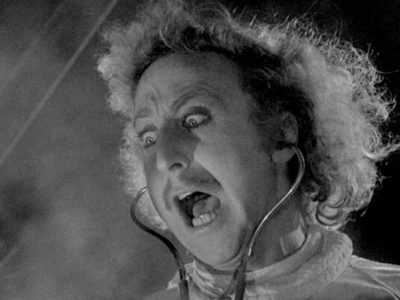What makes us feel hungry and thirsty? How can I feel full from dinner and still have room for dessert? Biochemistry answers these questions by examining the chemical pathways in biological systems. Major science buffs enjoy the ins and outs of hard science courses while studying in this major.
What You’ll Be Doing
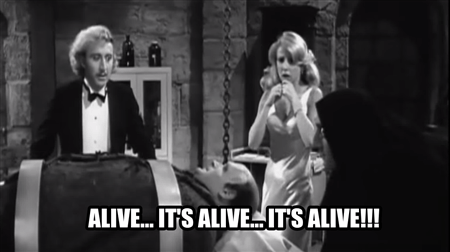
Although you won’t make monsters, biochem majors do enjoy hands-on courses. Some of the requirements they tackle include biology, chemistry, analytical chemistry, organic chemistry, physical chemistry, biochemistry and calculus. Most of the science courses correspond with a lab component that offer students opportunities to apply what you learned in hell—I mean, “advanced analytical chemistry.”
Upsides
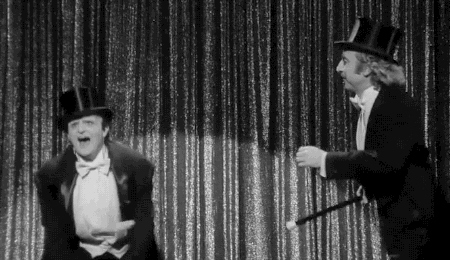
1. “I [was able to work] as a tutor at the university that allowed me develop eloquence in the subjects that I was studying since I had to break it down and… I was able to [do] research in Dr. Alabugin’s lab at FSU. It molded me into the lab rat that I am now.” —Juan Rojas, B.S. in Biochemistry from Florida State University, Panama City, Mass Spectrometry Technician
2. “A huge advantage that comes out of biochem is having a strong background in analytical thinking skills. You may not memorize nearly as much as biology, exercise science, etc., but what you lose in brute force memorization you gain in the ability to learn new concepts much more quickly.” —Kasey Schaettle, B.S. in Biochemistry from Florida State University, Student at FSU’s College of Medicine
3. “The nice thing about majoring in biochemistry is that is has a broad focus and allows you to study practically anything in graduate school… I turned to the DNA repair field for my post-doc to investigate how mutations in DNA repair genes can contribute to cancer.” —Antonia Nemec, B.S. in Biochemistry from Lebanon Valley College, Doctor of Molecular Toxicology
Downsides
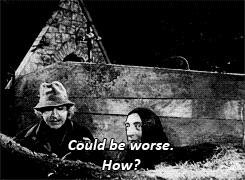
1. “Due to the extensiveness of [the material in] both chemistry and biology being nailed into our brains into a matter of four years, I felt there was not too much time to delve deeper into more specific subjects.” —Juan Rojas, B.S. in Biochemistry from Florida State University, Panama City, Mass Spectrometry Technician
2. “T[here are] labs on labs on labs that take forever to do. I don’t think I turned in an advanced analytical chem lab less than 25 pages long. You are a rainforest’s worst nightmare.” — Kasey Schaettle, B.S. in Biochemistry from Florida State University, Student at FSU’s College of Medicine
3. “Majoring in any science is difficult and can be very time-consuming. This was both the best and worst parts of the biochemistry major. I spent countless nights in the science building, sometimes until two or three in the morning working on lab practicals, homework or studying for upcoming tests.”—Antonia Nemec, B.S. in Biochemistry from Lebanon Valley College, Doctor of Molecular Toxicology
Career Opportunities
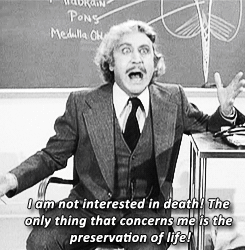
1. Educator
Getting your teaching certificate opens the door to teach middle and high school sciences. Because of your extensive knowledge in both biology and chemistry, you can be an invaluable asset for any school. Continuing your education to earn your doctorate qualifies you to teach at a college or university.
2. Consumer Safety Officer
An FDA Consumer Safety Officer investigates reports of “injury, illness and death” resulting from FDA-regulated foodstuffs and pharmaceuticals. As a field inspector you’ll travel to different factories and processing plants to test materials and products for contaminants or other agents. Administrative positions in D.C. include organizing new programs and advising different officials on how to interpret regulations.
3. Physician
The biochemistry major covers most, if not all, of the core courses required for medical school. Your knowledge about how biology and chemistry function together give you a leg up in your continued learning because you already mastered subjects that your peers have not yet begun to grasp. This will give you more time to focus on what you actually want to specialize in, not just core requirements.
4. Pharmacist
Pharmaceutical sciences, both in the laboratory and behind the counter of CVS, perfectly combine biology and chemistry. Pharmacists create and administer medications. You can work as a laboratory technician to produce drugs with just your bachelor’s degree. With a bit more schooling under your belt, you can work behind a pharmacy counter or in a professional lab developing and testing new medications.
Food Scientists work for companies that produce and distribute foodstuffs to help them run more efficiently. A food scientist working on a farm would test to see what percentage of nitrogen in fertilizer produces the most corn. In a factory you would see what packaging methods keep food fresh for the longest amount of time. This hand-ons job will keep you on your toes.

